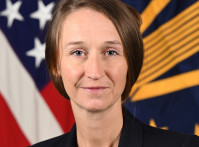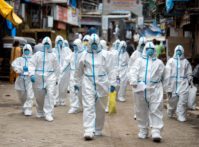-
ECSP Weekly Watch | February 24 – 28
February 28, 2025 By Breanna Crossman
A window into what we’re reading at the Wilson Center’s Environmental Change and Security Program
EU Parliament Suspends Rwandan Critical Mineral Pact Over Links to DRC Conflict (Mongabay)
Rwanda and the DRC both have large reserves of critical minerals essential to the clean energy transition. Yet the EU has voted to suspend a cooperation agreement on mineral extraction in the region after the Rwandan-backed rebel group M23 seized key areas in the DRC’s eastern provinces.
The illicit mineral trade has driven persistent conflict and poverty in both countries, with around 6 million deaths occurring there over the past 30 years. Armed groups rely on rural poverty to recruit workers, and export critical minerals to finance their activities. At present, the M23 makes $300,000 per month from critical minerals extracted in Africa’s Great Lakes region—at a time when three-quarters of the DRC’s population lives on less than $2.15 a day.
Human rights groups are optimistic that the EU’s vote will encourage greater transparency in natural resource governance and also discourage collaboration with rebel groups that threaten regional security. Other countries that import minerals from Rwanda and the DRC, including China and Qatar, may also seek guarantees these resources were extracted without violence.
READ | Could Japan and the US Support Latin America’s Critical Minerals Sector?
Britain’s Net Zero Sector Spurs Economic Growth (The Guardian)
Britain’s net zero sector is booming, increasing energy security and prompting greater economic growth. A recent study found that the country’s net zero economy is growing three times faster than the overall UK economy, and that it employs a million people across the UK.
Yet the growth of net zero jobs from initiatives ranging from green finance to renewable energy comes amidst conflicting statements by UK politicians about the importance of these goals for economic growth. While Nigel Farage’s Reform UK party has claimed that “net zero is crippling our economy,” chancellor Rachel Reeves sees net zero is “the industrial opportunity of the 21st century.”
The net zero sector also generated £83 billion in gross value added (GVA) to the UK economy in 2024— a measure of how much value was added through the goods and services produced. As energy bills have skyrocketed throughout Europe following Russia’s invasion of Ukraine in 2022, many consumers have turned to clean energy to bolster energy security and reduce reliance on imports of fossil fuels.
READ | The Renewable Energy Era Has Already Started
Indonesia Signs Agrarian Reform Commitment Amid Land Equity and Food Security Concerns (Mongabay)
One percent of the population of Indonesia controls 68% of its land. So rising concerns about land inequity and widespread poverty have led the Indonesian government to release a joint statement with civil society committing the nation to fast-track agrarian reform.
Since 2015, Indonesia’s government has attempted to use land redistribution to alleviate poverty and achieve food self-sufficiency. Yet some claim that these efforts have pushed marginalized groups like small farmers and Indigenous communities off of their lands, while favoring the interests of large agricultural corporations. Between 2015 and 2024, there were 3,234 agrarian conflicts which affect 1.8 million households in Indonesia.
President Prabowo Subianto has emphasized land reform as a part of his economic agenda, but he has previously granted large food estate project licenses to political allies. Yet the new joint statement is raising hopes that an emphasis on economic resilience and national security may allow small farmers to regain land.
READ | COP27: Growing Roles for Agriculture and Food Security
Sources: Al Jazeera, Antara, Energy & Climate Intelligence Unit, Gov.UK, Mongabay
Topics: adaptation, climate change, conflict, development, economics, energy, environment, environmental security, extreme weather, Eye On, food security, international environmental governance, just energy transition, land, livelihoods, meta, military, minerals, mining, natural resources, risk and resilience, security
 A Publication of the Stimson Center.
A Publication of the Stimson Center.








